|

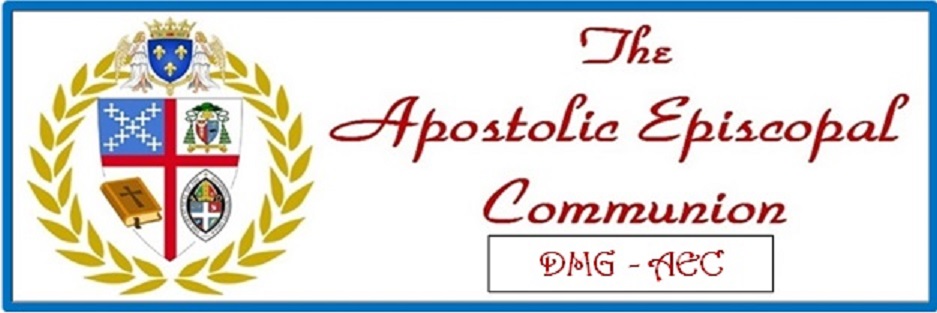
(The Apostolic Episcopal
Communion & Fellowship is in no way attached to the Apostolic Episcopal Church and is not a
part of the AEC in any way.)
How
does one become a Deacon in the A E C & F Churches
Here
is the order of obtaining Deacon’s Orders. for the Church of England (and other
Anglican churches worldwide): A deacon
is the lowest of three orders (deacon, priest, bishop) within the church. The
first step is to talk with the diocesan vocations advisor who will give you
information and discuss your calling. The first thing he or she will ascertain
is whether or not he thinks you have been callled by God, by your answers to
questions, manner and so on, or are just thinking of it as some sort of 'career
move'. If the advisor is satisfied you are being called then he will pass you
on to the Diocesan Director of Ordinands (DDO).
You
will meet with the DDO several times to talk through issues surrounding your
calling. He will prepare you for further exploration with the Bishop's
examining Chaplains. You will see two of these - experienced people (they can
be ordained or lay) who will chat through your calling, spirituality,
suitability etc in more depth. They will then pass on their recommendations to the
bishop. If positive, the bishop will then meet with you and chat to you also,
clearing up any issues raised by his examining chaplains. If he is happy then
he will officially sponsor you for selection.
Then
there follows a three-day residential selection procedure where you will be
expected to make a presentation, lead discussions, and have at least three
in-depth interviews. If the selectors agree with the bishop, then you will be
accepted for training.
Training
will take around 2 years full time or 3 years part time. During the training
you will be taught theology, bible studies and so on, and put on placement in a
local church. At the end of your training you will be presented to the bishop
for ordination. This first ordination will be to the 'diaconate' - in other
words you will be ordained a deacon.
Although
some ordained deacons stay deacons for ever, most, after a year of further
on-the-job training, are presented to the bishop again for a second ordination,
this time to the priesthood.
Both
deacons and priests in the Church of England wear clerical ('dog') collars, and
have the title 'Reverend'. Like the Roman Catholic Church, the office of deacon
or priest in the Apostolic Episcopal Communion and Fellowship Churches is open
to women and men. Deacons can undertake most of the duties of a priest,
but they are not authorised to give a blessing at the end of a service,
pronounce an absolution after a prayer of confession, or conscerate the bread
and wine at the Communion service. They can, however, visit the sick, baptise,
preach, officiate at weddings and funerals and so on.
The
third level of ordination, that of bishop, is received similarly
to that of the various Episcopal Churches. With all ordinations and
consecrations, and can be received by men and women.
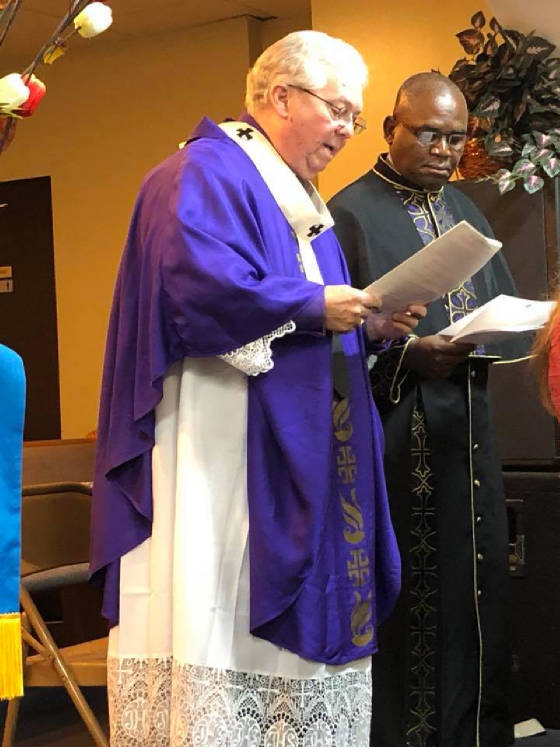
Filing
Fees
The Apostolic Episcopal Communion and Fellowship Churches
has non-ordained ministers such as local preachers, lay readers, accredited lay-workers
and so on, however, lay ministers are not permitted to celebrate sacraments as
an ordained minister or 'priest' would.
Certified/Specialized Ministers listed above: R300.00 ZAR
Deacon and Priest: R 200.00 ZAR
The application will request as references the name of your pastor, ministers
acquainted with your ministry background, friends and employers. All references
should know the applicant well enough to answer a comprehensive questionnaire.
A synopsis of the required examination for those seeking first time license,
along with specific study books will be sent to you to assist you in preparing
for the examination.
Most Certified and Specialized Minister applicants may have to pass a written
examination in order to become eligible, depending on past experience. Your
Pastor or a minister friend will administer the written examination. The
Ministries Secretary will notify you in writing that all your references and
materials have been received and you will be requested to contact the ministry offices
and arrange a time and place for the test to be given. Applicants will be asked
to use only their Bible during the examination
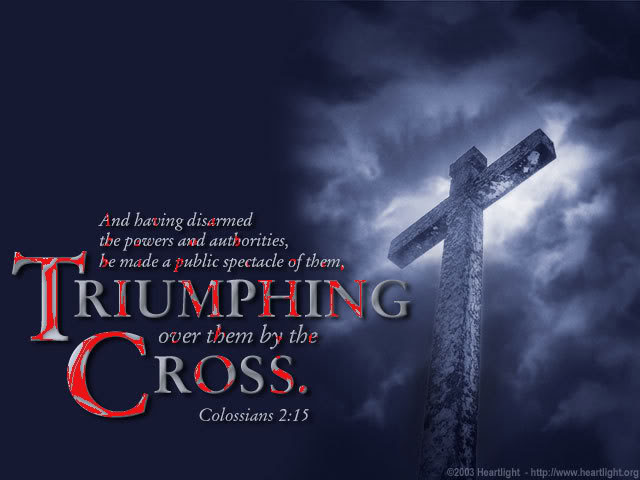
Financial
Responsibilities
The
work of Apostolic Episcopal Communion and Fellowship Churches, in its program
of developing the spirit of cooperation and fellowship in home and foreign
fields, incurs expense, including the financial support of the national
offices. A suggested minimum offering is listed below for each level:
Priest
- R500.00 ZAR monthly
Deacon
- R500.00 ZAR monthly
Certified
- R300.00 ZAR monthly
Senior
Retired - Free-will basis
All
credentialed priests / ministers are urged to give more than the suggested amount,
either personally or through the church where they are a pastor.
Annual Credential
Renewal
Credentials are to be
renewed each year on the form provided annually. They are mailed in November
each year and are to be completed and returned to the Dayspring / A E C
& F Churches offices no later than December 31. Priests should call
the Ministries office if they have not received their form by the first month
of the quarter before their credentials are to be renewed.
Renewal fees are as
follows:
ANNUAL RENEWAL FEE
FOR ALL MINISTERS R500.00 ZAR
Renewals received
after January 1 R200.00 ZAR
Reinstatement fee if
credentials lapse R125.00 ZAR
Postmarked after
January 15
Reinstatement
Applicants for
reinstatement must complete an Application for Reinstatement provided by the
Secretary/Treasurer. If the applicant has been lapsed for less than two (2)
years, they shall be required to furnish three (3) references. If the applicant
has been lapsed for two (2) years or more, they are required to take the
written examination according to the status of credential for which they are
applying.
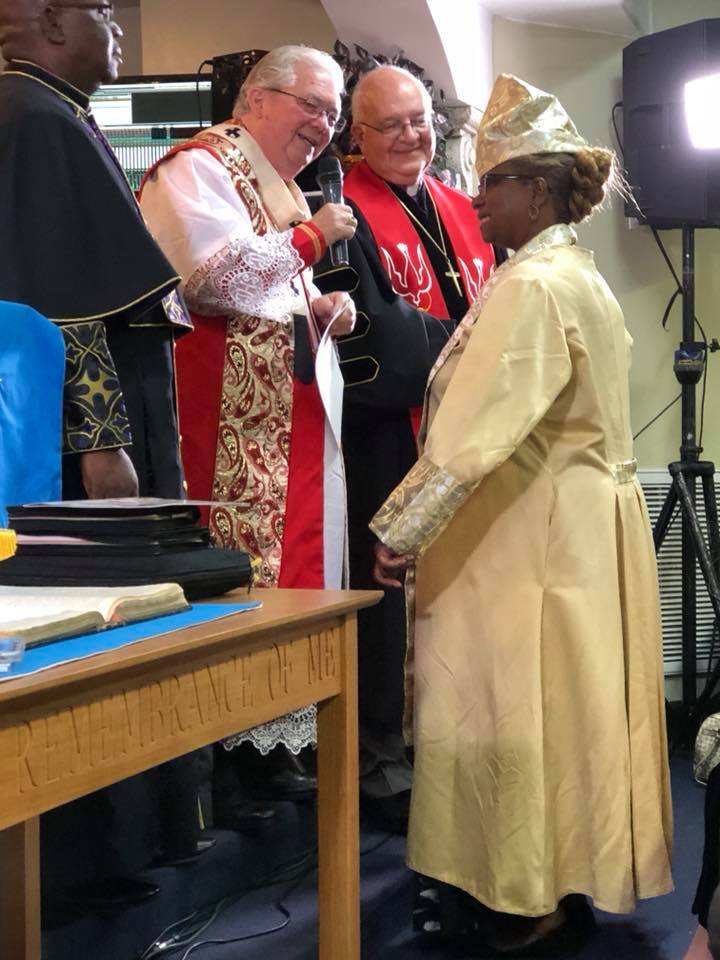
Prior
to Applying for the Ministry
Become
heavily involved in a parish located in the diocese in which you wish to be
ordained. Get to know all members of the church leadership, as well as a significant
portion of the congregation.
Assist
in church ministry programs that reach beyond church services, such as feeding
the poor, ministering to homeless, and caring for children. These will be the
types of activities in which you will be most heavily involved after becoming a
deacon.
Attain
familiarity with the rites, liturgy, organization, and history of the Apostolic
Episcopal Communion & Fellowship
Reflect
on your desire and suitability to be a deacon. Parish and diocese leaders
reviewing your application will want to see substantial evidence of serious
thought and planning before the ordination process can begin.
Administrative
Process
Begin
by discussing your desire to be a deacon with the parish rector or head priest.
Explain the reasons why you want to join the church ministry, and indicate how
your experiences so far at your parish have prepared you for the diaconate.
Meet
with a committee of lay members of the congregation over several months, during
which time you will discuss your calling and your suitability to serve as a
deacon
Ask
your parish rector or head priest to send a letter endorsing your candidacy to
the bishop of the diocese. This will alert the diocese of your desire and
inaugurate any administrative processes that have to be completed at that level
(requirements vary by diocese).
Complete
any educational requirements required by your diocese for becoming a deacon.
This may vary from a series of readings to a formal educational program (often
the Education for Ministry program) that lasts 3-4 years.
Fill
out all forms, sit for all interviews, and attend all meetings stipulated by
your diocese. This process, in conjunction with your education program, will
begin to familiarize you with the responsibilities of a deacon, and will allow
church leaders to evaluate your suitability.
Apply
for admission to your diocese deacon formation program. The program will
usually last two years, during which time you will be assigned to a parish and
will being to work as a minister.
Complete
all final administrative requirements and schedule a date for your ordination
by the bishop.
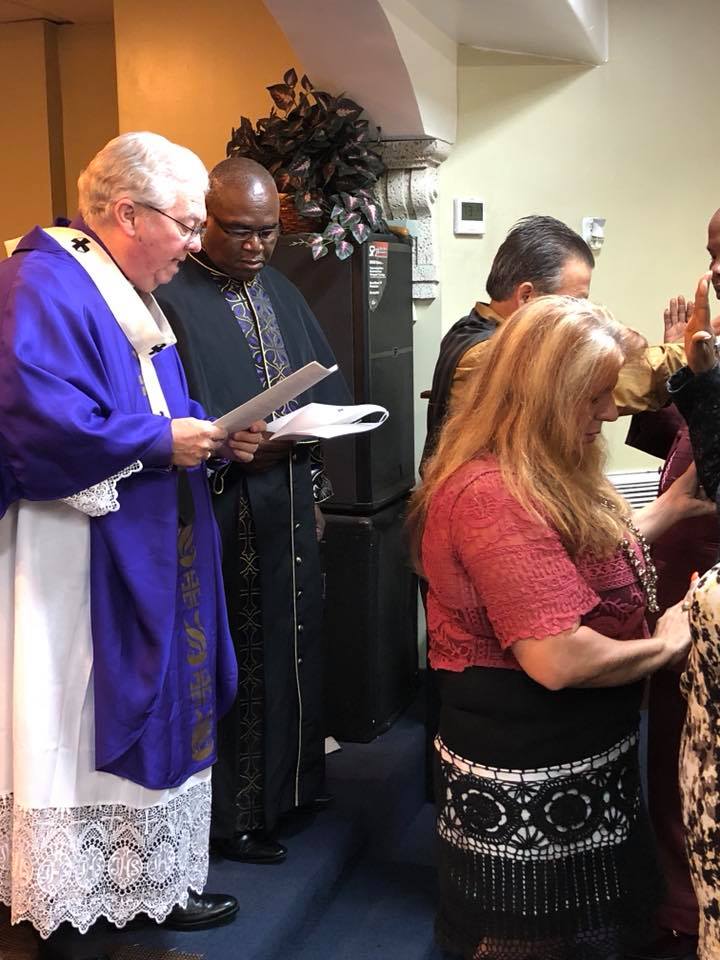
How does one
become a Priest in the A E C & F Churches
Priests
in the The House of Bishops
Apostolic Episcopal Communion and Fellowship are called to ordination by God,
and the call is confirmed by the church in a discernment process with the
prospective candidate for ordination. If you believe you may be called to the
priesthood, or if people have suggested that you consider ordination, the House
of Bishops, Apostolic Episcopal Communion and Fellowship offers a process to
help you to explore that call. The entire process of prayer, education and
consultation will take several years.
Test
your vocation initially in prayer and by participating in ministry
opportunities in your congregation.
You
are known as an aspirant during this initial phase in the ordination process. Explore
your vocation within your congregation. Ask your rector to pray with you and
tell him or her that you are exploring the possibility that you are called to
ordination as a priest.
You will meet with representatives of the congregation, usually the Vestry (the
elected lay leadership of the congregation) if your priest agrees that you may
have a vocation. They will help decide whether to present you to your diocesan
bishop and Commission on Ministry for consideration as a postulant for
ordination, which is the next step in the process toward ordination.
Meet
with your bishop and Diocesan Commission on Ministry if you have the support of
your parish committee and your rector. Share your discernment process to date
and ask for guidance. Your diocesan bishop and Commission on Ministry will
determine whether to approve you as a postulant, the first formal step in the
ordination process. Plan for, and begin, your seminary education.
The
House of Bishops, Apostolic Episcopal Communion and Fellowship, has an online
University with several teaching centers in parts of Africa, the United States
and around the world. There is also a consortium of schools attached to
Dayspring Christian University. Study for the priesthood can be
accomplished at DCU or other schools attached to the University. You must apply
to, and be accepted by, a seminary, which is a 3-year graduate program leading
to a Masters Degree in Divinity. You may, if your diocese permits, attend a
non-Episcopal seminary. You will need to complete additional studies or
training in the Anglican tradition. Continue to work and pray with your bishop,
Commission on Ministry and home parish during your seminary studies.
Postulants
write Ember Day letters 4 times during the year to their bishops. Ember Day
letters are written during the week of the third Sunday in Advent, the week
after the first Sunday in Lent, the week beginning with Pentecost, and the week
after the first Sunday following Holy Cross Day. Ember Days are traditionally
special days of prayer and fasting for those preparing for ordination. Ember
Day letters report to the bishop on your reflections during this phase of your
spiritual journey.
You will also continue during seminary to meet with your bishop and other
diocesan representatives as prescribed by the regulations of your diocese. Apply
to your bishop, Commission on Ministry and Standing Committee to move forward
in the process and be considered a candidate for ordination.
You will usually be a candidate for at least 6 months before applying for
ordination as a deacon. Take the General Ordination Exam (GOE), usually during
your final year of seminary. All candidates for ordination must take and pass
the GOE. The exam consists of 7 essay questions, given over 5 days. Candidates
are given 3 hours for each essay. The GOE covers the 7 canonical areas of the
Holy Scriptures, Church History, Christian Theology, Christian Ethics,
Contemporary Society, Liturgics and Music and Theory and Practice of Ministry. A
new exam is developed each year by the General Board of Examiners of the
church.
Apply
for ordination as a deacon. You will serve as a deacon for at least 6 months
before being ordained a priest. Apply for ordination to the priesthood. You may
be ordained to the priesthood upon the approval of the Commission on Ministry,
the Standing Committee and the bishop.
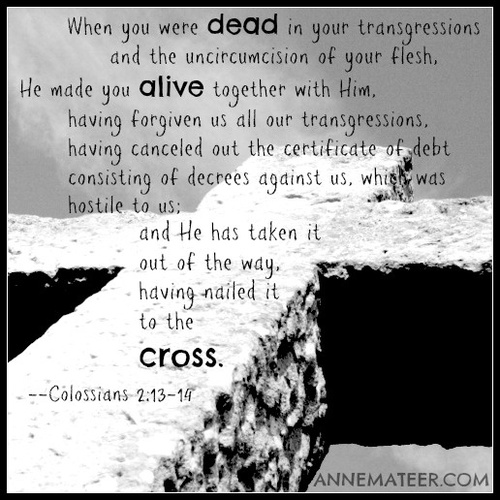
|
